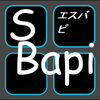The CHK functions can't be any more expensive than the overhead of actually using CALL or RESTORE, because those functions check first for exception handling.
What's the "system-wide empty string"? This isn't like Java where strings are immutable. That will create a string of length 0 and return a reference to it, simple as that.
Cost of CHKWHATEVS and the empty string

I don't use SmileBASIC, but I'd think it wouldn't be too expensive (or take a long time to run). If you did something like that in another language, it would be almost immediate. Never mind that the 3DS is a much slower ARM processor. It will still be pretty fast if you're looking in a table.
If you'd like a benchmark for that, do this in a program. If I missed some new SB syntax, add it
DIM X$(3)
X$(0)="I like turtles"
X$(1)="Hello, world!"
X$(2)="I love SmileBASIC"
FOR I=0 TO 2
IF X$(I)=="I love SmileBASIC" THEN PRINT "Worked!"
NEXT
I was under the impression that the empty string always pointed to the same string... weird. Like strings were more of a functional list than arrays or something that wouldn't run well, I dunno. It would be neat if it didn't allocate an array until it had length
If I define a string in PRG2 and return it to PRG0 from a COMMON DEF, is it the same the same string, or a copy?
It's the same string - though if it was defined as a local variable in PRG2 then that local reference is deleted and the only reference that remains is the returned one (which can then be assigned to a string variable in PRG0 - also not a copy). COPY does work on strings if you want to force a copy, though.
Strings and arrays both work on the principle that they are deleted when no more references to them exist.
